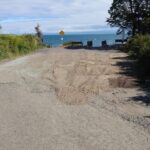Article – I’ve stepped out to talk with farmers near Kindersley, Saskatchewan this week, and one topic consistently surfaces over coffee: soil health. The Senate’s recent advancement of Bill S-224 may not grab front-page headlines, but for the agricultural communities stretching from Prince Edward Island to Vancouver Island, this legislation represents a quiet revolution in how Canada approaches its most fundamental resource.
“We’re farming differently than our parents did,” explains Morgan Walsh, a third-generation grain producer I met at a community forum last Thursday. “The soil isn’t just dirt to us anymore—it’s a living system we’re trying to protect.”
The National Soil Health Strategy Act passed its third reading in the Senate last month with cross-party support, setting the stage for what could become Canada’s first comprehensive approach to soil management. The bill, championed by Senator Rob Black, calls for developing a national framework to monitor, maintain and enhance soil quality across Canadian farmland.
What makes this legislation noteworthy isn’t just its environmental ambitions, but the unusual coalition supporting it. Conservative senators who typically resist federal environmental initiatives have joined progressive voices in backing the measure. Agriculture Minister Marie-Claude Bibeau signaled the government’s support during committee hearings, calling healthy soil “the foundation of Canada’s food security and agricultural prosperity.”
The bill emerged after Agriculture Canada’s sobering report last year revealing that nearly 65% of Prairie farmland has lost more than half its original organic matter since cultivation began. That decline represents both an economic and environmental threat, with government estimates suggesting soil degradation costs Canadian farmers approximately $3.1 billion annually in lost productivity.
“This isn’t just about sustainability—it’s about survival,” says Dr. Claudia Thompson, soil scientist at the University of Saskatchewan. “When you’re losing topsoil at ten times the rate it’s being replenished, you’re essentially mining your future.”
The proposed strategy would establish national soil health metrics and monitoring systems while providing financial incentives for farmers adopting regenerative practices. These include cover cropping, reduced tillage, and management-intensive grazing—techniques that build organic matter while sequestering carbon.
Critics, particularly within the Conservative caucus, have expressed concerns about potential regulatory overreach. Alberta MP Mike Lake cautioned during debate that “farmers don’t need Ottawa telling them how to manage their land,” reflecting western agricultural communities’ traditional wariness of federal programs.
But the bill’s architects have emphasized its collaborative approach. Rather than imposing top-down regulations, the strategy would coordinate existing provincial programs while establishing knowledge-sharing networks among farmers, researchers and industry.
The Prairie Agricultural Machinery Institute estimates that widespread adoption of soil health practices could sequester up to 13 megatonnes of carbon annually—equivalent to removing 2.8 million cars from Canadian roads. This climate dimension has attracted support from environmental organizations that rarely align with agricultural policy initiatives.
For farmers like Bernard Toussaint, who manages 1,200 acres near Drummondville, Quebec, the economics are equally compelling. “I’ve cut my fertilizer costs by almost 40% since switching to cover crops five years ago,” he told me during a phone interview. “The soil does more of the work now.”
What distinguishes this bill from previous agricultural initiatives is its long-term horizon. The strategy would establish decade-long targets rather than the typical four-year policy cycles that frustrate farm planning.
Statistics Canada data shows Canadian farmers have already embraced many soil-conservation practices independently. No-till farming has increased from covering just 7% of Prairie cropland in 1991 to over 65% today. However, adoption remains uneven across regions and farm types.
“The challenge isn’t convincing farmers that soil health matters—it’s creating the conditions where they can afford to prioritize it,” explains Laura Mitchell, policy director with the National Farmers Union. “This bill acknowledges that reality by focusing on incentives rather than penalties.”
As the legislation moves to the House of Commons this fall, its passage seems likely given the rare cross-party consensus it has generated. Yet implementation questions remain, particularly around funding mechanisms and provincial coordination.
Standing in a test field where researchers are evaluating different cover crop mixtures, soil scientist Thompson points to plots showing dramatically different water retention capacities. “This isn’t just academic research,” she says, crumbling rich black soil between her fingers. “This represents Canada’s capacity to feed itself in a changing climate.”
For farmers watching from their combines and tractors, the bill represents an overdue recognition of agriculture’s dual role as both economic engine and environmental steward. Whether it translates into meaningful change will depend on how effectively the strategy bridges the gap between political ambition and on-farm reality.
As Walsh puts it before heading back to check on his canola crop: “We all want the same thing—healthy soil that’ll still be producing food when my grandkids take over. If this bill helps make that happen, I’m all for it.”






